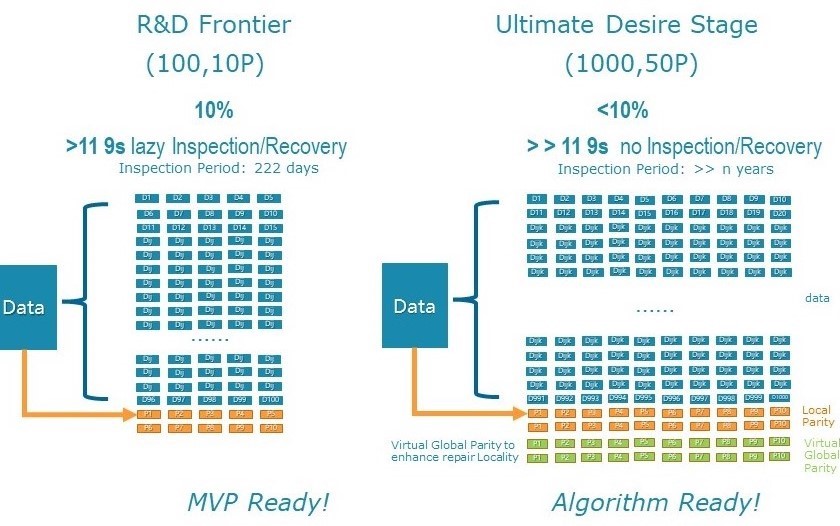A Erasure Code for Robust Storage
In Genesis coding, data is broken into fragments, expanded and encoded with redundant data pieces (Parity) and stored across different locations or storage disks. When one or more disks fail, the data on failed disks is reconstructed using the surviving data and parity disks. As a general-purpose MDS (Maximum distance separable) code, it provides the most efficient data protection.


Go beyond current boundary
Unlike R-S codes, where computational complexity shows polynomial growth in relation to data block size and number of blocks. The new Genesis code is a much simpler & elegant algorithm, the computational complexity grows linearly with the number of blocks. Therefore, Genesis codes can be applied to manage a large number of blocks with large block sizes. We have a MVP that manages hundreds or thousands blocks with superior data durability. ex: 150+15p & 1000+50p.
Performance benchmarking
Genesis Code: GC(19,16): 16 Data, 3 Parity
Encoding Throughput: 6.8 GB/s
Decoding Throughput: 9.3 GB/s
Intel Pentium G5400@3.70GHz (no SIMD acceleration)
Throughput >10 GB/s per core (avx512 acceleration)
Big improvement over similar Reed Solomon Codes

If you are still using Reed-Solomon coding...
The world is changing, a New Era has begun in the Erasure Coding field... Are you ready to embrace change? We can offer the free trial library to support your evaluation.